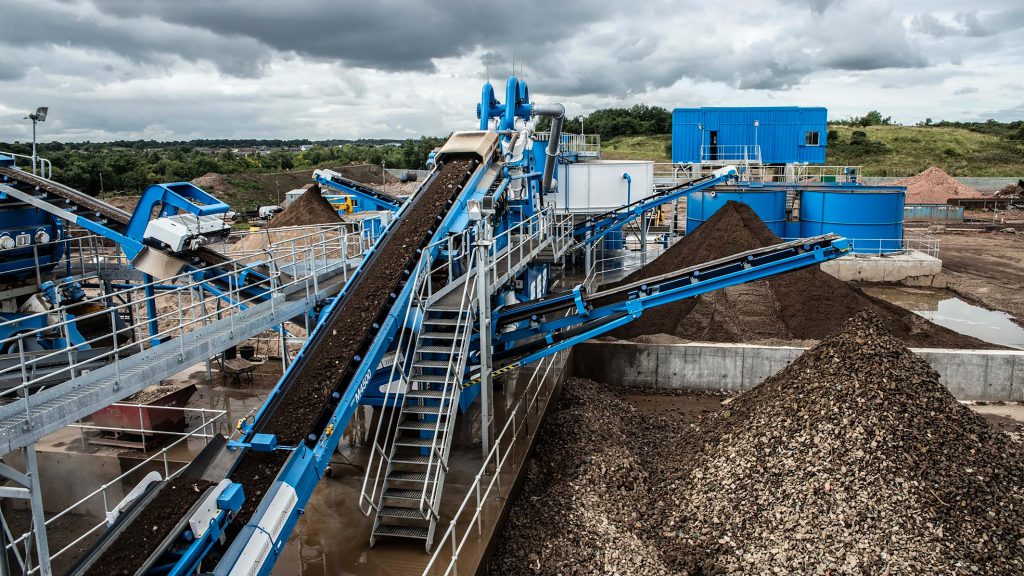A Knowledge Transfer Partnership will create new products from waste streams and develop Scotland’s first hazardous soil treatment centre

Heriot-Watt University has joined forces with Brewster Bros, a leading recycling business, in a Knowledge Transfer Partnership (KTP) to create new materials from the residual waste left over during the recycling process.
Recycled clay can account for up to 25% of the output produced when excavation waste is recycled via a washing process. This by-product commonly ends up in landfill.
Now, a £250,000 Knowledge Transfer Partnership (KTP), co-funded by Innovate UK and the Scottish Funding Council, aims to develop Scotland’s circular economy approach further by undertaking significant research and development into creating new sustainable products from waste streams. The project will also include the creation of a hazardous soil treatment centre, the first of its kind in Scotland.
Jim Berryman is KTN’s Adviser supporting the project who commented:
“It’s always a pleasure to see a KTP project being launched and witness the enthusiasm to make transformative change. This is certainly the case in this Partnership, and the added potential to make such a significant environmental impact adds further sparkle in a sector that we all rely on”.
Professor Gabriela Medero, a geotechnical and geoenvironmental engineer from Heriot-Watt University, will oversee the research. She explains:
“As pressure mounts on global governments to react to the climate crisis, future regulation and legislation in the waste industry must be shaped to facilitate the adoption of a complete circular economy. Net zero targets are ambitious and will only be met through a reduction in the consumption of finite resources and a shift towards the use of sustainable products. Landfill, a symptom of the linear economy, can only be reduced if waste can be more effectively recycled into sustainable and innovative products.
“Recycled clay is an exciting but currently unexplored material which could significantly reduce the waste we send to landfill each year. However, many barriers remain that prevent waste from major industries like construction being better utilised, including a lack of scientific understanding about material composition and the criteria for its use as set out by governing bodies like the Scottish Environmental Protection Agency (SEPA).
“Through this project, we will rigorously test the properties and behaviour of the recycled clay to prove it meets Building Standards for product specification by performing a life-size case study on its performance attributes.
“Additionally, we will investigate the use of spent oil shale and incinerator bottom ash as secondary aggregates, producing research evidence in the processing and application techniques which we hope will allay any concerns about their future use.”
See the full story on the KTP website here.
Knowledge Transfer Partnerships link innovation-focused businesses with specialist academic teams in a collaboration that addresses a key strategic business challenge.
Over its 45 year history, the programme has supported innovation in more than 14,000 businesses right across the UK. KTN is a delivery partner of the programme for Innovate UK and has a national network of 31 highly experienced Advisers who support each project and help it deliver tangible, positive impact for all partners.
The newer Management KTP complements the “classic” KTP programme. It has a people focus, helping develop and transform skills, capability, culture and productivity.
Funding competitions for KTP and Management KTP are open throughout the year. More information is at www.ktp-uk.org

